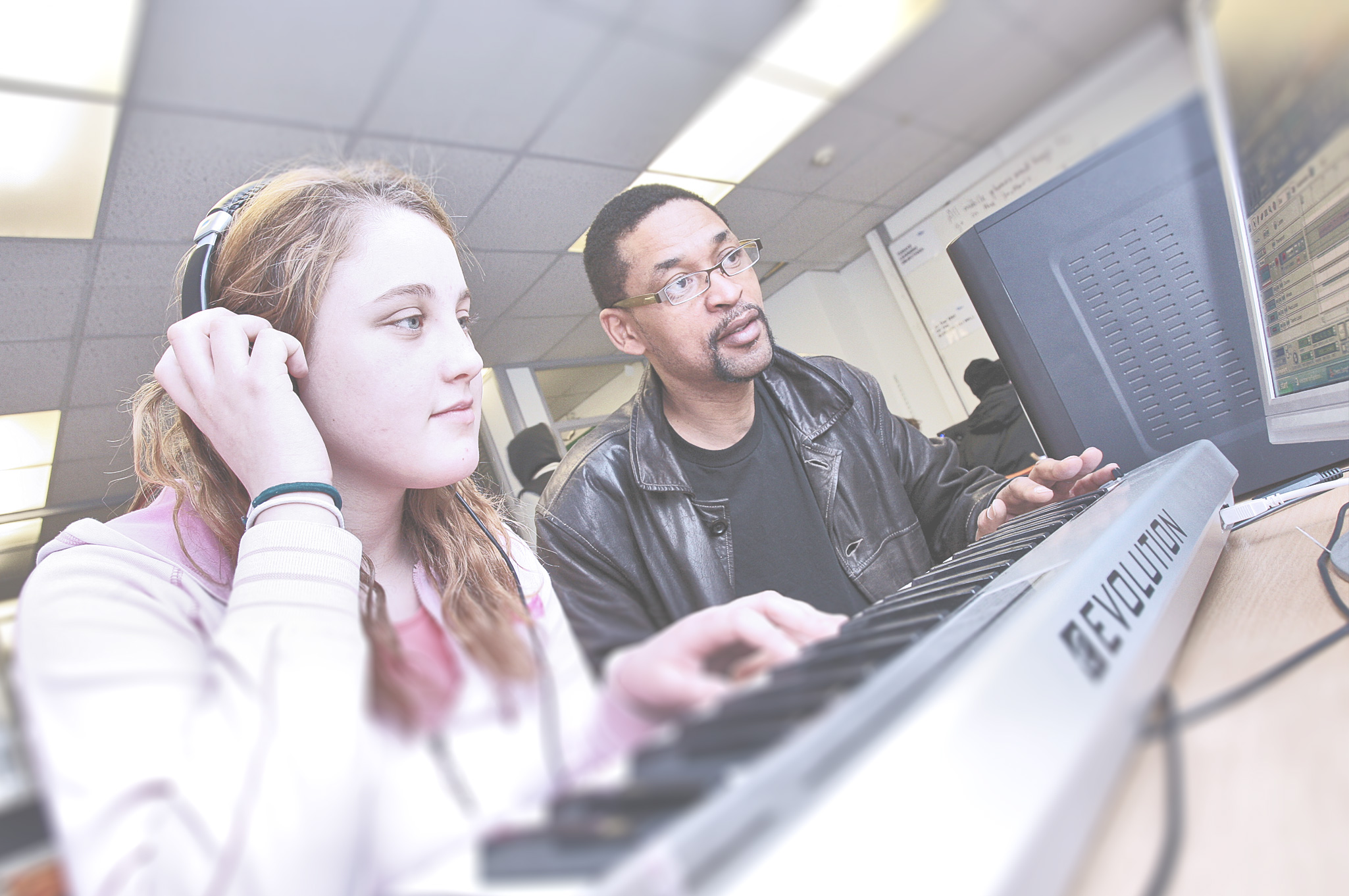SEND & Inclusion Policy
Statement of Intent
StreetVibes Media Academy (SV) aims to offer a creative and engaging educational experience to young people aged 11-19 years old. We recognise that many of the young people that we work with have a history of disrupted education, and that many may have diagnosed or undiagnosed Special Educational Needs or Disabilities (SEND). StreetVibes has high expectations for all its students, and is committed to ensuring each student is supported to achieve his or her full potential, regardless of SEND, gender re-assignment, pregnancy & maternity, race, religion or belief, sex or sexual orientation.
Definition of SEND
Students have special educational needs if they have a difficulty accessing the curriculum, temporary or more long-term, which calls for special educational provision to be made for them. Students have difficulty accessing the curriculum if they:
-
Have significant difficulties in learning in comparison with the majority of young people of the same age;
-
Have a disability, which prevents or hinders them from making use of educational facilities of a kind generally provided for young people of the same age.
Special Educational Provision may be triggered when a student fails to achieve adequate progress, despite having had access to a differentiated programme. Parents/carers and staff will be informed that the learner has special educational needs and appropriate provision identified to meet the student’s individual need(s) will be made. Lack of adequate progress may be indicated by:
-
Little or no progress despite the use of targeted teaching approaches, quality small group teaching and a differentiated curriculum;
-
Working at levels significantly below age expectations, particularly in Literacy or Numeracy;
-
Presenting persistent emotional and behavioural difficulties which have not been managed by appropriate strategies usually employed;
-
Sensory or physical impairments that result in little progress despite the provision of appropriate aids and equipment;
-
Poor communication or interaction skills, requiring specific interventions and adaptions to access learning.
Students must not be regarded as having a learning difficulty solely because the language or form of language of their home is different from the language in which they will be taught.
Achievement and inclusion for all and of all is central to StreetVibes’ core principles.
We regard all students and adults as being of equal value and we actively seek to:
-
raise the aspirations of and expectations for all students with SEND
-
enable students to reach their full educational potential
-
ensure each student has a clear pathway for their future ambitions and well-being including independent living, further education and employment
-
give equal opportunities to all
We recognise that around 25-35% of our students have SEND. We are committed to making appropriate provision for them to ensure that they have full and equal access to the curriculum and are enabled to reach their full educational potential.
At StreetVibes, our learning takes place in small groups, and staff aim:
-
that students with Special educational needs will be supported in a caring and supportive environment which encourages self-confidence and where independent learning will be promoted;
-
to provide every student with access to a broad and balanced education. This includes the National Curriculum in line with the SEN Code of Practice.
-
to ensure that we celebrate the wide range of our students’ achievements
-
to support all students to excel by offering multiple pathways for progression
-
to equip students with the skills and attributes necessary for adult life
-
to be able to justify our choice of intervention in terms of appropriateness and effectiveness
-
to nurture an environment where all students respect and celebrate the achievements and diversity of their classmates, regardless of SEND, gender re-assignment, pregnancy & maternity, race, religion or belief, sex or sexual orientation.
Objectives
-
Staff members seek to identify the needs of students with SEND as early as possible. This is most effectively done by gathering information from parents, education, health and care services and referral schools prior to the student’s entry into the academy. Where needs have not been previously identified staff have an obligation to report concerns or observations to the SENCo, who will submit an EHCP request to the local authority.
-
Monitor the progress of all students in order to aid the identification of students with SEND. Continuous monitoring of those students with SEND by their teachers will help to ensure that they are able to reach their full potential.
-
Make appropriate provision to overcome all barriers to learning and ensure students with SEND have access to the school curriculum/National Curriculum. This will be coordinated by the SENCo and will be monitored and reviewed i to ensure that individual targets are being met and students’ needs are catered for.
-
Work with parents to gain a better understanding of their child, and involve them in all stages of their child’s education. This includes supporting them in terms of understanding SEND procedures and practices and providing regular feedback on their child’s progress..
-
Work with and in support of outside agencies when the student’s needs cannot be met by the academy alone. We receive support from Education Psychology Service, Speech and Language Therapy, Child and Adolescent Mental Health Services (CAMHS), the LA’s SEND Team and Social Care teams.
-
Create an environment where students can contribute to their own learning by offering all students the opportunity to voice their own opinions. This is achieved by encouraging positive relationships with staff in school and carefully monitoring the progress of all students at regular intervals.
Linked Policies
This policy is linked to the Attendance Policy, Complaints Policy, Accessibility Plan, Equality and Diversity Policy, Anti-Bullying Policy and Safeguarding Policy.
Admission and Provision for SEND
The admission arrangements for all students are in accordance with national legislation, including the Equality Act (2010). This includes children with any level of SEN, those with Statements or EHCP and those without. At StreetVibes we make provision for frequently occurring special educational needs without a statement of special educational needs or Education Health Care Plan. The educational needs of our students include dyslexia, dyspraxia, physical difficulties, hearing and visual impairments, speech and language needs, Asperger’s, autistic spectrum disorders, learning difficulties and emotional and mental health needs. The academy also works towards meeting the needs of students with a statement of special educational needs or EHCP. These student’s needs are as above but more complex and long term. Decisions on the admission of students with a statement or EHCP are made by the Local Authority in consultation with parents and the academy. The admission arrangements for students without a statement of special educational needs or EHCP do not discriminate against or disadvantage disabled children or those with special educational needs.
Arrangements for Coordinating SEN provision
The SENCo will hold details of all SEN Support records such as the ILPs, provision maps, diagnostic tools, intervention records and records pertaining to individual students with SEN. The SENCo is responsibility for disseminating relevant information to teaching and support staff, coordinating appropriate staff training and providing guidance on specific SEND where required.
Identification of SEND
Students will have needs and requirements that may fall into at least one or the following 4 areas of need:
Communication and Interaction including:
-
Speech, language and communication needs
-
Autistic spectrum conditions including Asperger’s Syndrome
Cognition and learning including:
-
Specific learning difficulty
-
Moderate learning difficulty
-
Severe learning difficulty
Social, mental and emotional health including:
-
Attention, deficit, hyperactivity disorder
-
Attachment disorder
-
Anxiety disorder
Sensory and/or physical including:
-
Hearing/visual impairment
-
Physical disability
The academy, in accordance with the SEN Code of Practice 2014 believes the following are not SEN but may impact on progress and attainment, and staff work with with parents/carers, outside agencies and the student to overcome these barriers including:
-
Disability
-
Attendance and punctuality
-
Health and welfare
-
English as an additional language
-
Students being in receipt of Pupil Premium Grant
-
Students Looked After
-
Being a child of Servicemen/women
-
Young Carers
SEN Support
Every teacher is a teacher of students with special educational needs. Subject staff and leaders monitor the progress of all students and staff implement appropriate personalisation to meet student need in lessons in the first instance through:
-
High quality teaching, differentiated for individual students, as the first step in responding to students who have or may have SEN;
-
Subject teachers who are responsible and accountable for the progress and development of students in their class, including where students access support from teaching assistants or specialist staff, as additional intervention and support cannot compensate for a lack of good quality teaching
-
Students with a disability will be provided with reasonable adjustments to overcome any disadvantage experienced in the academy and increase their access to the curriculum.
The quality of classroom teaching provided to students with SEND is monitored through a number of processes that include:
-
Classroom observation by the senior leadership team and external verifers
-
Ongoing assessment of progress made by students with SEND
-
Work sampling and scrutiny of planning to ensure effective matching of work to student need
-
Teacher meetings with SENCo and Learning Support staff to provide advice and guidance on meeting the needs of students with SEND
-
Student and parental feedback on the quality and effectiveness of interventions provided
-
Attendance and behaviour records
-
Achievement and progress monitoring
All students have individual subject targets set in line with national outcomes to ensure ambition. Parents and, if appropriate, referral schools are informed of progress against targets via the termly reporting systems and also at events such as Parents’ Evenings. Students’ attainments are tracked using the student tracking system and those failing to make expected levels of progress are identified. These students are then discussed in weekly progress meetings with the SENCo and leadership team. Additional action to increase the rate of progress will then be identified and recorded, including interventions requested from external agencies. Some students will have a higher level of need. Where this need has been identified, additional funding to support these students will be requested from the appropriate source, e.g. the referral school or the LA High Level fund.
Roles and Responsibilities
The roles and responsibilities of StreetVibes staff with regard to special educational needs are given below. They are in accordance with the Code of Practice (2014) guidelines:
Governing body/Trustees:
The Governing body will have overall responsibility for setting the Academy’s policy on Inclusive Education. In partnership with the Head of Learning, the Governors have responsibility for:
-
Deciding the academy’s approach to meet the needs of students with SEND
-
Ensuring that the Head of Learning sets objectives and priorities in the School Improvement Plan, which include provision for SEND
-
Monitoring the policy through the school’s self-review procedures
-
Reporting annually to parents on the academy’s policy through the academy website or newsletter.
Head of Learning:
-
Setting objectives and priorities in the School Improvement Plan
-
Line managing day-to-day provision for students with SEND, including setting a budget for supporting students within the academy’s overall financial resources.
-
Informing the Governing body
SENCo:
-
Disseminating information and raising awareness of SEND issues
-
Is responsible to the Head for the management of SEND provision and the day-to-day operation of the policy
-
Managing and developing the roles of Teaching Assistants, through training
-
Screening and identifying students
-
Coordinating provision for students
-
Supporting the teaching and learning of students with SEND
-
Keeping accurate records of all students with SEND
-
Drawing up, reviewing and monitoring ILPs for those with SEND and others, as required
-
Monitoring delivery of the Inclusive Education policy
-
Liaising with parents and carers of students with SEND
-
Liaising with and advising subject staff and support staff
-
Liaising with schools and outside agencies
-
Contributing to in-house training and external training where appropriate.
Teaching Staff:
-
Devising strategies and identifying appropriate differentiated methods of access to the curriculum
-
Recognising that central to the work of every teacher is the cycle of planning, teaching, assessing and evaluating that takes account of the wide range of abilities, aptitudes and interests of the students in their classes
-
Ensuring ILPs are considered in the class and strategies applied
-
Monitoring progress of students with SEND against agreed targets and objectives
-
Be fully aware of the academy’s procedures for SEND
-
Raising individual concerns around students to the SENCo and their team.
Teaching Assistants:
-
Support students with SEND and the wider school population.
-
Plan and deliver individualised programmes where appropriate enable them to become independent learners
-
Monitor progress against targets using academy data and observations while working with targeted students.
-
Assist with drawing up ILPs for students and supporting the development of provision mapping
-
Contribute to the review process, either in person or with a written report
-
Work with small groups in or out of the classroom, under the direction of the class teacher
-
Support students on educational visits
-
Jointly plan with teachers, where appropriate including developing differentiated resources for specific students
Monitoring and Evaluation of SEND
Student progress will be the overwhelming evidence criteria of the success of the Inclusive Education Policy and this will be analysed carefully through:
-
Achievement of targets
-
Attainment and progress in English and Maths from KS2 to 4
-
External examination results, including GCSE results and Foundation courses.
-
Improvement in reading ages and other standardised test results
-
Regular termly review meetings with students and parents/carers
-
Feedback from students and parents/carers
Links to Support Services
The school continues to build strong working relationships and links with external support services in order to fully support our SEN students and aid school inclusion.
Sharing knowledge and information with our support services is key to the effective and successful SEN provision.
Staff training
We aim to keep all staff up to date with relevant training and developments in teaching practice in relation to the needs of students with SEN. The SENCo attends relevant national and local courses and facilitates/signposts relevant SEN focused external training opportunities for staff. All teaching assistants are offered training opportunities through a flexible combination of in-house, LA and national training events/agencies around specific cohorts or students working in the academy.
All staff attend SEN INSET presentations as part of the teaching and learning programme e.g. team teach sessions/ Friday afternoon sessions/whole school INSET
New staff, including support staff, undertake induction on taking up a post and this includes meeting with the SENCo to explain the systems and structures in place around the academy’s SEN provision and practice.
Medical Conditions
StreetVibes recognises that students with medical conditions should be properly supported so that they have full access to education, including school trips and physical education. Some students with medical conditions may be disabled and where this is the case the academy will comply with its duties under the Equality Act 2010.
Some students may also have special educational needs and may have a Statement or EHC plan which brings together health and social care needs, as well as their special educational provision and the SEND Code of Practice (2014) is followed.
__________________
This policy will be reviewed annually. This policy was last reviewed March 2023






